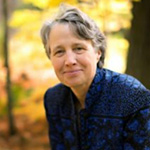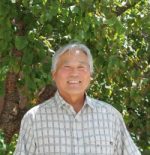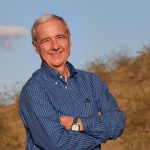Time for Action: ESA initiates a Diversity, Equity, Inclusion and Justice (DEIJ) task force
Racism and prejudice continue to harm communities of color. ESA stands firm in its commitment to challenge and break down inequities in our community of scientists and practitioners of ecology. Today, we reach out to you with an update towards fulfilling the commitment made in the June 2020 letter to the community.
At that time, ESA pledged to redouble its efforts to make Diversity, Equity, Inclusion and Justice (DEIJ) evident in all aspects of our work and align our organizational structure with ESA’s stated values. Across ESA, we began a more in-depth study on how we operate as an organization, what must change, and what resources it will take to make those changes.
Over the summer, ESA took small steps to support the Black, Indigenous and People of Color (BIPOC) community while also laying the framework to develop concrete plans for structural change, which started by asking tough questions about barriers, injustices and long-perpetuated structural inequities within ESA. We held an open, online listening session, “Speaking of Race,” with over 170 members in attendance. Participants shared past experiences, as well as thoughts and perspectives about how ESA can move forward. The call from members is clear—ESA leaders must take up these challenges; they are not for the ecological community of color alone to fix.
In August, the ESA Governing Board reviewed a preliminary action plan and unanimously supported the creation of a DEIJ Task Force. Its charge is to review real and perceived barriers to full participation by all ESA members, to prioritize actions and propose metrics and a timeline for their implementation, to estimate the resources required to carry out the actions, and to deliver the recommendations to the ESA Governing Board. The Task Force will initially focus on anti-racism and the second phase of its work will focus on all aspects of diversity, equity, inclusion and justice.
The DEIJ Task Force is composed of these initial members:
Anjali Boyd, Duke University
Jacoby Carter, U.S. Geological Survey Wetland and Aquatic Research Center
Jacquelyn Gill, University of Maine
Zakiya Leggett, North Carolina State University
Robert Newman, University of North Dakota
Pamela Templer, Boston University
Staff support: Catherine O’Riordan, Executive Director, and Teresa Mourad, Director of Education and Diversity Programs.
The DEIJ Task Force will actively seek to engage members and representatives from ESA Committees, Sections and Chapters, especially those who have articulated so well both profound challenges and recommendations for change (e.g., Sealey et al. 2020 ESA Bulletin). As our DEIJ Action Plan takes shape, we ask for input from all ESA members. Join an initial listening session on October 7 (4-5 p.m. EDT, register in advance) to help inform the Plan development. Additional Task Force updates, activities and recommendations will be communicated with members throughout the year.
Structural change happens when existing systems and ideas are challenged, new ideas are generated and we make active progress toward changing the system. Your voice, passion and ideas can contribute to ESA’s evolution.
 |
|||
|---|---|---|---|
| Kathleen C. Weathers | Dennis Ojima | Osvaldo Sala | Catherine O’Riordan |
| President | President Elect | Past President | Executive Director |
 |
 |
 |
 |